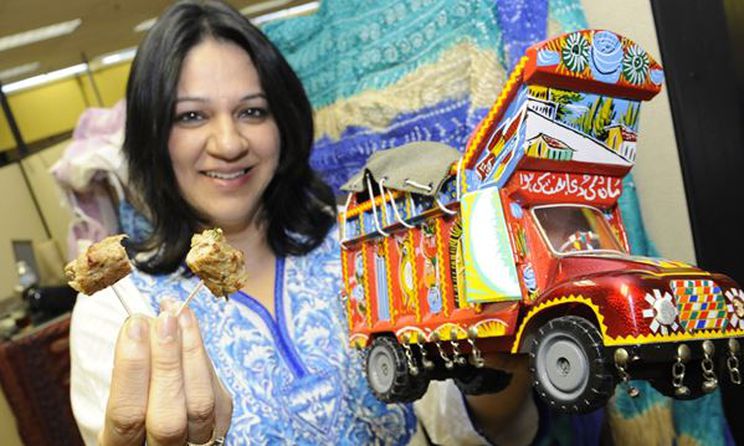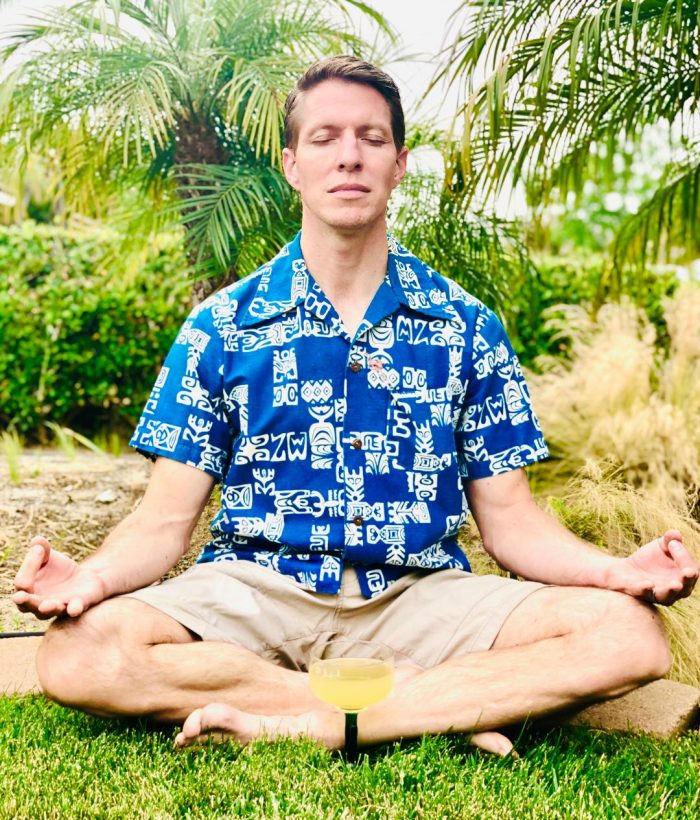Today, I want to have this important conversation with you regarding the 8 main character traits that narcissists look for in their victims. I really want you to know from the bottom of my heart that a narcissist can’t just target anybody. I know there are people out there that say this is true, but it isn’t.
Pathological narcissists know what to look for in their victims. They know how to size people up, and like a predator in the wild, they target somebody with the most “meat” who isn’t going to take a lot of energy to snare, capture and take down. For a predator, this is important – to make sure precious energy isn’t expended beyond the energy payout of the meal.
What is the payout to a narcissist? It’s narcissistic supply. Narcissists need to work out who to target and enmesh with quickly in order to start securing and regulating the energy and Life Force from another required to feed their False Self who doesn’t have the ability to have its own source of energy.
So, with that being said, I would love to share with you the 8 main character traits, in my humble opinion, that I believe narcissists look out for in their victims. I want to start off with the really obvious ones that most of us know about, leading to the ones which will take you to a powerful inner truth, about what it is that you can heal and shore up within yourself to ensure that you will never be on a narcissist’s hit list again.
Please note these following traits relate to any person susceptible to a narcissist on the hunt for narcissistic supply – such as a potential love partner, accommodating family member, potential business associate, new friendship, client, student, neighbour … you name it.
Number One – A Generous Nature
Narcissists are in the business of taking energy, Life Force, resources and lots of miscellaneous stuff from others, even though initially they may appear as one of the nicest, most generous and caring people that you could ever meet.
Yet, they are sizing you up. They observe what your levels of gratitude are. Are you a nice person? Are you someone who has trouble receiving and wants to reciprocate readily? Do you give generously to others, even at the expense of yourself?
These are all very important matters for a narcissist, because absolutely and utterly if they capture you as narcissistic supply and start feeding off your Life Force you will be giving out a lot – favouring the narcissist at your own expense.
As we work through this article, I hope that you will realise that this beautiful super-trait that you have of being generous, even though it is capitalised on by a narcissist, in no way means that you will be susceptible to a narcissist. Yes, they look for it, but it’s not the defining reason why you will get taken in by one.
I hope that this is good news for you, that you can continue to be a warm-hearted generous person and not be afraid of narcissists. Read on, and you will discover how and why!
Number Two – A Trusting Nature
The next of the 8 character traits that a narcissist looks out for in their victims is not as desirable! You may wish to be a trusting person, because you want to believe that other people have the decent, honest nature that you do. Yet, I can’t say to you enough that the most effective to be safe, empowered and have TRUSTWORTHY relationships, is to trust yourself.
This is something that I desperately needed to heal and learn myself!
Virtually everybody who first encountered a narcissist had an intuitive feeling that something wasn’t right, or at the very least not long into the encounter/relationship had uneasy feelings that really required questioning.
Why didn’t we question?
Maybe we had an idealistic belief that everybody just “is” or “should be” a good person, just like we are.
Maybe we felt uncomfortable and squirmy about having a difficult conversation questioning somebody else’s motives or behaviour.
Maybe, we were too busy (or lazy) to take time to do our due diligence or investigate, or ask for credentials, before committing to a business deal, or some other form of relationship that could leave us vulnerable if this person didn’t have good intentions.
Maybe we were feeling too empty, needy and emotionally enthralled to use sensibility and get to know this person’s character before opening up our body, bed, home and Soul to them.
All of this equates to being too trusting.
I promise you this (just as I fortunately discovered) when you start growing up as a result of healing your Inner Being, and take responsibility for being the generative experience of your own life born out of your choices, you can start to realise that it is not adult or healthy to just blindly trust people.
In fact, if we do, we pay a terrible price!
If we do (as I used to always do!) it’s because of an undeveloped “self”, unhealed trauma, causing us to be “a wounded child within” who has not become an adult taking proper care of ourselves.
If we don’t do the Inner Work, and just continue to be a victim, banging on about other people’s bad intentions, without taking responsibility to keep ourselves safe, healthy and on solid ground by showing up in honesty and with healthy boundaries – we are missing the point.
Narcissists used to love me, because, truly, I used to do all of these “maybe’s” I previously mentioned.
As a result of much needed inner Thriver Healing, no longer do I play Russian roulette with important aspects of my life.
I take my time. I listen to my Inner Being. I ask the difficult questions when necessary, and do the investigative research. I wait and see what people’s character and values are before letting them into the inner sanctum of my life. And, if things aren’t aligning with my values and truth once a relationship commences, I confront the issues and have the honest conversations.
Why?
Because never again will I bypass all of these adult necessities to enable a predator to infiltrate and rip my life, Soul and those and what is precious to me to pieces ever again.
Is this a terrible price to pay? Healing enough to show up in adult ways, rather than just believing “other people should do the right thing?”
Not at all! Rather, this “growing up” has allowed me more success and positive progress in my life as well as happiness than I could ever imagine!
And I know it will do the same for you.
Number Three – High Integrity And Work Ethic
Narcissists love other people doing the heavy lifting. This enables a narcissist to live their life like a loose cannon, grabbing narcissistic supply whilst leaving the “boring necessities of life” to be mopped up by you.
Things like paying the narcissist’s fines. Keeping the fires burning, the roof over everyone’s heads and the food on the table. Or maybe, you are just expected to be home, for whatever reason looking after the children, creating an image of a “happy family” whilst the narcissist is doing whatever the narcissist is doing out there in the world.
Within a business, family or friendship the narcissist may leave everything mundane, difficult, or which costs time, effort or money to you – shirking their share of responsibility.
For most narcissists playing “team” makes them feel like they are just like everybody else – inferior and normal (which are disgusting realities for a narcissist).
Another one of your super-traits that a narcissist will look out for, is that you are responsible, hard-working and like to “do the right thing”. This means that you will take responsibility for the narcissist’s messes, which they don’t want to take responsibility for. This enables the narcissist to be able to have a somewhat secure life, whilst they enjoy the drama and the mayhem of being a narcissist.
Again, I don’t want you to think that this trait is not a great one to have! It is! However, what most of us who’ve been with narcissists need to heal and learn is to stop taking responsibility for people’s lives who refuse to take responsibility for themselves.
And, after extracting yourself from the clutches of a narcissist and all of the enmeshment that you have with them in a love, financial, business and real-life sense, not combining with people like this again, until you know the reliability and truths of their character and their application in real life affairs.
Recovery from narcissistic abuse is about detaching and allowing other people to suffer the consequences of their own behaviour, even if it means that it’s going to affect you as well. Because in the long run, the more that you try to hold the house of cards up with your efforts, the more the narcissistic destruction occurs with your Life Force, resources and Soul being sucked dry.
It’s best to get off the ship, regardless of the losses, before it sinks completely and takes you down with it.
At some point you need to quit holding things up, detach, let them fall and extract what you can to save yourself, heal and rebuild your life out of this mess.
Number Four – Your Still Existing Hurt
Narcissists infiltrate your life by finding out what it is that has hurt you, and professing to be the saviour of it. They know that this creates an instant trust and bonding with them. In fact, it creates a powerful bonding, not unlike feeling like a person in a desert who has just discovered an oasis to save their life.
Many years ago, a narcissist wrote in an email admitting (bragging really) how easy it was for them to get somebody to fall in love with them immediately. They said they would ask a person how the last relationship went, find out what was still hurting them, look them in the eyes, pretend to be caring and genuine and tell them they don’t think like that and would never do that themselves, and then this person would be eating out of their palm.
I can’t tell you how many times I’ve seen the real-life evidence of this happen to people who have been instantly caught up in narcissistic relationships.
It happened to me too!
Narcissists do this to people in business, friendships and all sorts of relationships, not just love relationships. It’s a simple formula – discover what is missing and then profess to be the saviour of it.
What does this mean when we are targeted in this way? It means that we have a limp, like a wounded gazelle, about to be pounced on by a predator.
What is your protection from this?
Not having a limp!
This is why I so strongly suggest for anybody, just as I needed to do with myself, to face your inner trauma and unhealed wounds and heal them up to a solid completion, so that you have become your own saviour and become a solid “self”.
Then you are not offering yourself up on a silver plate with those unhealed aspects of yourself that a predator can capitalise on.
Please know this – no-one is the saviour of your wounds. As an adult that is between you and Source and your own Inner Being. People don’t come into our lives to rescue us, they come in as the match for the existing composition of our Inner Being.
If you are still carrying the hurts of your previous relationships, then your new relationships are likely to match and be that exact frequency. That’s what narcissists look for, and what they deliver.
Thank goodness there are REAL and powerful solutions to this! Myself and so many people are the poster children of those who were once SO susceptible to narcissists, who now are not at all.
You can make this evolution leap as well!
Number Five – Weak Boundaries
Many, many people who were taken in by narcissistic abuse had the fear of C.R.A.P. (criticism, rejection, abandonment and punishment). When something was triggered inside us, letting us know that something wasn’t right, we didn’t speak up – we feared doing so.
And then maybe when we did, we did so ineffectively because we didn’t know how to lay boundaries which could be enforced.
Narcissists avoid people with good boundary function. People who speak up, confront and are not scared by what someone else will or won’t do as a result of them being true to themselves are NOT on a narcissist’s snack list.
A narcissist can’t manoeuvre them, guilt them out of boundaries, manipulate them with charm, or threaten them with disapproval or abandonment.
A narcissist will push boundaries very quickly to test what he or she can get away with. It may be in a conversation where they let “slip” some of their loose behaviour. Or it could be in their treatment of you, or others, or the inappropriateness of what they ask you for.
If you don’t put up a boundary to questionable behaviour then the narcissist will push the boundary some more.
Did you speak up? Or did you just agree? Were you your own person? Or were you the “yes” girl or guy?
This is why (as I talk about often) it is so vital for you to be healed up to the level of being a “self” who has solid boundaries. Are you prepared to have the difficult and even confrontational conversations right from the beginning if something feels “off” without the fear of someone attempting to CRAP (criticise, reject, abandon or punish) you?
Are you prepared to “lose it all to get it all”?
Please know this – if someone does not have your level of values and truth, if you are not TOTALLY willing to speak up, detach if necessary, let go and move on and know “there is much better and healthier coming to me,” then what you are choosing is what you will get.
There will be no “Okay I can handle this and address it later.” We all know how badly that turned out!
Number Six – Thirsty for Love/Attention
Instant enmeshment is the name of the game for the narcissist. They are drug addicts wanting the “high” of narcissistic supply.
Your attention, sexual energy and them being the centre of your universe may all be lofty and “incredible” romantic ideals – yet these ideals are incredibly risky, childish and unhealthy (okay I hope that was the cold bucket of water over your head that I intended you to feel!)
Narcissists love being like idealistic little kids in adult bodies, imagining that you are the best thing since poached eggs. They will tell you how you are better than all the others, ask you where you have been all their life, and how they are in love with you immediately (or something like that).
Narcissist also love bomb any existing relationships to drag people back in to use up again, and also in new relationships of all varieties, not just love entanglements.
If you are empty, depressed and unhealed, you could be extremely susceptible to this narcissistic unhealthy garbage.
I love the expression “hungry people make the worst shoppers!” Yes, they do! They put junk food in their trolly!
And, just like junk food, you could also be on a high from the rush of a narcissist’s love-bombing, but just like the sugar rush from the crap food you ingested, the big crash comes afterwards.
The pedestal that the narcissist threw you up on comes smashing down and then the narcissist starts stomping you mercilessly.
Why?
Because the “rush” was not real! It was not based on fundamental core values, a decent character and time to build a healthy interpersonal relationship, just like the sugary food held no real nutritional value!
Your inner healing and learning to heal and mate you own Soul first (especially after suffering narcissistic abuse) is vital to start connecting with real healthy Soul Mates in this lifetime.
Every relationship as an adult (without exception) starts with yourself.
Number Seven – Needing Approval
This next character trait that a narcissist looks out for in their victims is very much about what I just wrote about in Number 6, yet with even more to it.
If you are not yet healed up to be a solid “self” then someone you wish to be in love with (or have some form of important relationship with) can play on this HUGELY!
You needing approval is how this person can keep you hooked, and be able to extract and regulate narcissistic supply from you. This is why a narcissistic person looks out for this trait.
This is how it goes – you are horrified about what this person thinks about you, calls you, accuses you of and insinuates you are doing.
Narcissists do this a lot, because they project their bad thoughts, behaviours and broken malfunctioning parts on to you – accusing you of thinking, being and doing all the things they do.
If you have not as yet healed up to be a solid “self” you will stay attached. You will try to prove you are not this person! It breaks your heart and infuriates you that they think this!
You try to twist yourself into a million different shapes and jump through the ever-rising hoops to prove to them you are a good person, you are not like that and it’s actually them that is like this and not you.
Narcissists love this – they love the fact that you are now granting them copious amounts of attention that conforms with what they want to believe, “I am oh so important because I can affect another person this significantly.” (This to a narcissist is triple A grade narcissistic supply.)
How do you avoid being in this position?
Be healed up enough to be at peace with who you are and know, “What you think of me is not my business. What I think of me is my business.” Then you will recognise this as ridiculous abuse, pull away and carry on with your life, with people who do have the inner functioning ability to know and believe who you are.
Number Eight – Desire To Change And Fix Others
When we don’t have a self, then absolutely rather than pull away to heal and change our own choices, participations and inner relationship codes, we try to fix and change other people to get them to provide us with a “self” – the love, approval, security and survival that we have not as yet established between ourselves and True Source – our Higher Power / Life Force / Creation / The available healthy resources of life.
This creates intense trauma bonding. It means we will lecture and prescribe and keep clinging on to and rolling around with abusive people, often no matter how much they hurt us.
The truth is, that you may not have faced yet, (just as I had to face within myself) you feel terrified to pull away and sort out your own traumas and fears and insecurities, and feel more in control by trying to change someone else in order to try to feel whole and safe.
This is the scary and self-defeating thing about this – the more you try to control someone else’s behaviour, the more out of control you feel emotionally with your own.
If we hang out with sick people, trying to force them to be healthy, we get very, very sick.
We also discover that nothing we do works. We are in a cycle of violence where problems don’t get sorted out, there is never any real or lasting resolution and the cracks are getting deeper and the painful times much more intense.
In fact, as narcissistic abuse intensifies, the problems start to morph into terrible losses, devastation and a battle for our very Soul.
Why does it get this bad?
Because the spiritual true lesson of narcissistic abuse is that we are not meant to make it work with these people, this is all happening FOR us to let go, turn inwards and deeply heal ourselves.
In Conclusion
I hope that this article regarding the 8 character traits that a narcissist looks out for in their victims has helped you deeply understand that the most important aspect of all is for you to have a healthy and healed up “self”.
Then you have the ability to trust your gut, speak up, confront, check out and take your time with people, and not be as needy as to blindly trust without due diligence.
And, above all TRUST and BACK yourself to walk away from people who don’t check out as having the capacity or desire to share your values and truths.
After narcissistic abuse, we certainly can turn inwards to heal ourselves and develop these attributes, in order to healthily choose the people and situations in our life that do have the capacity for honesty kindness, support, true love and teamwork.






Read 46 comments and reply